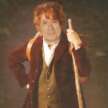Dad is my Rehab Counselor?
How did that happen?

On the editing floor of my existential documentary were piles of disconnected stories.
I had no hope or the energy to reconstruct my history that made sense.
My life at 18-years old grew messy.
The days of hanging a thumb out and moving with the muse were over. The wide-open, timeless moments of youth were now compressed into out running reality.
It seemed, that time was running out on me.
I was sick of my hardscrabble existence. It made for a good song but in real life it sucked. A few dollars earned at daily labor, someone’s couch, and Big Mac Happy Meals got old.
Communication with my parents remained sketchy. And I didn’t know how to make amends.
The way I reconnected with my dad was by happenstance. We met at a crossroads — we were both trying to earn a living.
While the rest of my family left Minneapolis and relocated to California, my dad stayed behind to start a new job. After his training was completed, he would also transfer to California.
Dad got a job through a government program DVR (Division of Vocational Rehabilitation). They hired him to be one of their vocational counselors, which seemed ironic.
My dad would be a career counselor?
After his mysterious roadside accident, that laid him up for years, I knew it hadn’t been easy for my dad to land this job. To meet the qualifications, he had to return to night school and complete a Master’s program in vocational not “therapy” counseling.
I sat at my dad’s desk with wide eyes. It had been a long time since I’d seen him last and I’d never seen him behind a desk. He looked smart in his blue blazer and open-collar shirt, the phone with many buttons, a fax machine, and a secretary.
The scene reminded me of my experience at the food stamp office. I was happy to see him and glad to see he was over the accident. He was more a mystery than ever.
I had resigned myself to the philosophy that our estranged relationship was a fact of life. I’d better make the best of it.
He had me booked for an hour and other clients followed me, so we got on with the meeting.
“There’s a new trade school called Humbolt Institute. I can arrange your enrollment,” Dad explained.
“That’s great, Dad, but what does the school teach?”
“Don’t worry about it,” he said, brushing off the question.
“Who will pay for it?” I inquired further.
“Don’t worry about the money, either.” Dad told me, “I have a relative in the business, and he will give you a job.”
I was stunned by this sudden fair weather life-changing moment.
My dad would not give me money to live on. Allow me to stay in his apartment, but he managed to get DVR to sponsor me as a rehabilitation case.
What I was being rehabilitated from and to was never explained. This was the third time in my life the word rehabilitation was used about me. The first time was in elementary school. The second was my probation officer. Now, I was hearing it from dad.
Dad had a bona fide accident and a war injury. It left him partially disabled, but how that applied was another question. The only sense I could make of the rehabilitation conversation was a round peg in a world of square holes that needed reformatting so it would fit in.
Drop the guitar. Get real. Become a taxpayer. When would I wake up from this crazy compass nightmare?
No one would back my idea to go to music school. I had little choice other than to go along with dad’s plan and hope for the best. He was my dad after all and if I couldn’t trust him, who could I trust?
Humbolt Institute had created an unfounded trade program called “Dental Technician.”
What took many years on the job to learn they compressed it into only one year. The art of building prosthetic teeth out of metal and wax was a specialist trade, a time-honored tradition, filled by an apprentice. The art compared to skilled craft-like jewelry making.
Teeth were important, I convinced myself. What would my life be like without them? I reasoned, it looked sexy dressed as a dentist in the brochure. The white pressed jacket had an air of privilege, cleanliness, and class.
Finally, they called it a “vocational school” where grades were not as important as what my hands could do.
“How would you like to make $30,000 first year?” The admissions coordinator wearing round glasses, bow tie, and clipped mustache asked.
“I can make $30,000?” I asked, dreaming about the guitars I could buy with that money
“That is the current starting wage for a Crown and Bridge technician.” He replied.
It took little prodding to get a starving 18-year-old to sign a contract promising the American Dream.
Little did I know that I had signed for state funding and a student loan. He was double billing the tuition. Did my dad get a kickback? I never discovered.
The technology of the trade was fascinating. Hand drills, metal casting, and a vast array of high-tech dental tools. I would wear a white lab coat and believed each day I went to the school that was one last day spent in poverty.
My musical aspirations on hold.
In the classroom, I felt like an immigrant from a third-world country trying to overcome a feeling of inferiority.
I often talked to a plastic model of a mouth. As I added teeth trying to create a set of dentures, the mouth of the sacred tooth fairy said, “Forget this nonsense. It’s not you!”
Fixing your bite will make me rich,” I said to the mouth. I pushed a back molar into the hot wax of the denture and the conversation ended.
Unlike my classmates, I had no money to live on. The school sucked up my grants and loans to leave me nothing for rent, food, and clothes.
Two months into the program my dad moved to California. I was the last in my family to remain in the town where I grew up.
A new feeling of abandonment found a hole in my skin and burrowed its way into the nervous apple of my heart. “You make your bed and lie in it,” my mother’s slogan echoed across the vast distance that separated us.
This was not the life I imagined. I walked away from my home at 15 years old to rebel for civil rights, the Vietnam War, and to pursue music.
A year later, I graduated from the Tooth Fairy school with doesn’t matter straight A’s.
I was a new man with that diploma.
In embossed letters, an important-sounding slogan in Latin was below my name.
The world was my oyster now.
Doors would swing open like magic with a simple wave of my toothbrush. There would be “Mr.” before my first name!
“How are you going to get here on time?” The dental lab owner asked me in the interview.
“Millions of people ride the bus,” I said, showing him my new diploma. “Why should that matter?”
“Nice diploma,” the owner said. “There are no open positions.”
The school was closed for fraud and I never found a job out of the deal. I was stuck with the bill.
“There’s a cavity right here, in the interproximal space. Mandibular, left #2 bicuspid,” I told the dentist during my appointment.
“Where did you learn that dental vocabulary?” he asked.
“I went to dental technician school.” I clarified, handing him my medical welfare card. “Please check the occlusal surface of my upper first molar, distal cusp, too.”
The job my dad promised with a relative never materialized and I was stuck with the tab.
About the Creator
Arlo Hennings
Author 2 non-fiction books, music publisher, expat, father, cultural ambassador, PhD, MFA (Creative Writing), B.A.






Comments
There are no comments for this story
Be the first to respond and start the conversation.